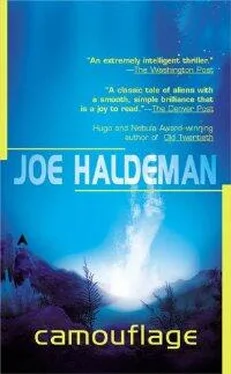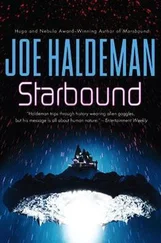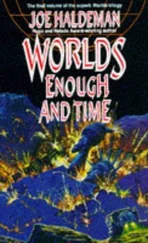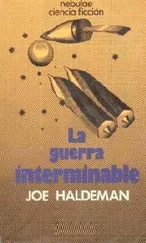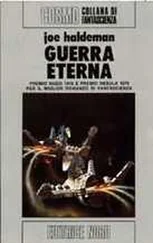The guards were brutal and stupid. If the changeling did anything outside of a certain range of behaviors, they would wrap it in a strait-jacket and throw it in the rubber room.
It came to understand coercion and confinement. It could have slipped out of the straitjacket, prefiguring Plasticman, and kicked down the door like Superman. But there would be no education in that. It submitted to beatings and rapes—rich pretty boy who can’t tell on you. It learned something like sympathy for Dutch, though pain was just input to it, and humiliation was not yet in its emotional range.
It listened to the other patients when they had social time together. That it responded in monosyllables, sometimes bizarre, went unnoticed. In fact, it was getting a slow, and somewhat skewed, version of the learning process that a human child would go through. It “grew up” by observation and assimilation.
A large part of the puzzle was human linguistics, and the ultimately related problem of mimicking human thought processes. It took two years, but by the time “Jimmy” was twenty, no one was beating or raping him. He was moved into a clean, quiet part of St. Anthony’s, and after awhile was allowed to have visitors.
His parents were so glad to see him acting “normal” that they overlooked the fact that he didn’t act like Jimmy at all. He was released into their care.
The changeling had assimilated a wide range of behaviors, and a fairly sophisticated sense of which was appropriate at which time. To the Berrys, their son had become quiet and dignified and perhaps a little shy, which was a real advance over the brutal sodomist they’d tendered to St. Anthony’s.
The changeling played piano for hours at a time, and it also spent a long time just watching the sea. It knew it was being observed and evaluated, this time by amateurs, and could deliver a nuanced performance.
It had learned how to simulate the behavior of a teenager who had been troubled, but now was on the road to recovery. It had seen that that was the only way to get out of St. Anthony’s and move on to the next stage of development.
This was the most complex creature it had ever imitated. Its successes gave it a pleasure like joy.
Apia, Samoa, 2020
Once the artifact was seated on its pad, a gang of workers paid extra for speed and overtime began building the laboratory around it. The government moved in before the drywall was up.
Halliburton and Russell had come down from their hotel lunch to take a look at the building’s progress. They crossed over the moat on a makeshift bamboo bridge and let a supervisor show them around the place. He claimed they could begin moving in equipment in four days; the trim and painting would be done in five. That was better than they’d contracted for.
When they started to go back, there was a man in a white tropical suit waiting on the other side of the moat, an uncomfortable-looking guard at his side.
“Mr. Halliburton, he—”
Halliburton cut him off with a gesture. “Who are you and who are you working for?”
“Dr. Franklin Nesbitt,” he said, “chief of NASA Advanced Planning.” He was a tanned muscular man with close-cropped white hair who stood absolutely still, except for offering his hand.
Russell took it. “We’ve had correspondence.”
“Of a sort,” Nesbitt said. “You basically said that whatever I was selling, you weren’t buying.”
“That’s still true,” Halliburton said. “You have no jurisdiction here.”
“Nor claim any. But I have an offer you might find interesting.”
“No, you don’t. You’ve come a long way for nothing.”
“Jack,” Russell said, “we can at least be civil.” To Nesbitt: “They’re serving tea at the hotel. It would be nice to talk to somebody who isn’t a reporter.” He called ahead while they walked to the Jeep, and by the time they got to the hotel their private dining room was set with crisp linens and heavy silver.
An Irish woman brought in tea and trays of trimmed sandwiches and pastries.
“My indulgence,” Russell said. “Jack is more like beer and potato chips.”
“Total barbarian,” Halliburton said, snagging a watercress sandwich as he sat down. “So what do you have that’s so interesting? What do you have that’s interesting at all?
The other two men waited while the woman poured tea and left. “General or specific?” Nesbitt said.
“General,” Russell said.
He rubbed his forehead, and for a moment you could see the seven time zones of jet lag.
“Basically, and expecting initial rejection, I’m offering you our expertise for free.”
“Right about that,” Jack said. “The rejection.”
“If we did seek outside help,” Russ said, “why should it be you rather than the Europeans or Japanese?”
“We’re older and larger—not in terms of money, true, but as a research organization.”
“We are doing research here,” Jack said, peering doubtfully into a sandwich, “but we’re primarily a for-profit organization. One that doesn’t have the faintest idea of what it will find. But we have a good chance that it will be earth-shaking.
“I’ve sunk most of a large fortune into this. I took on Dr. Sutton and his team because I felt I could trust them. In exchange for keeping their work secret, they are limited partners as well as salaried employees: if things go well, they all get a small percentage of what should be an astronomical return. If there’s any leak, anything, they all get nothing.”
“We’re prepared to allow you to keep all financial returns from anything our people discover.”
“People. That’s the problem, Dr. Nesbitt. As an organization, NASA can promise anything it wants. But if one of your people stumbles on an antigravity machine, I think he or she might trade a job with NASA for limitless wealth.”
Nesbitt nodded amicably, tasted his tea, and sifted some sugar into it. “Your investment is, what, about a third of a billion eurodollars?”
“Close enough.”
“Then let me go from the general to the specific. We’re prepared to match your funds. Wipe the slate clean.”
“In exchange for?” Russ asked.
“A team of twelve researchers who would clear every publication with you, and also assign any present or future profits to you.” He looked at Jack over the rim of his teacup and sipped. “Up in my room I have a long contract to that effect, which I’m told covers everything. Also, dossiers of the twelve.”
“Including you?”
“I wish, but no. I’m just an administrator who loves science. I don’t think you’d be impressed by my physics B.S. from Arkansas.”
Jack smiled. “Maybe more by that than by your MBA from Harvard.” He tapped his hearing aid. “Wonderful machines, these.”
Nesbitt didn’t blink. “Is it tempting?”
“Of course it is,” Jack said harshly.
“Jack, we agreed from the get-go. No government. No military applications.”
“We’d be amenable to that. It’s not what we’re looking for.”
“What are you looking for?”
“Half our team are exobiologists. It’s not so much a ‘what’ … as a ‘who.’ ”
Woods Hole, Massachusetts, 1935
The Berrys were surprised when their son didn’t want to go to Juilliard, which they certainly could have afforded. The changeling was interested in music, but its interest was not human, and it could be indulged anywhere. It could sit alone in the dark and play, in its mind, fantastic compositions that no human could play. With two extra imaginary hands, it could play a Bach fugue forward and backward at the same time. It often did things like that in the hours it had to feign sleep.
Читать дальше
